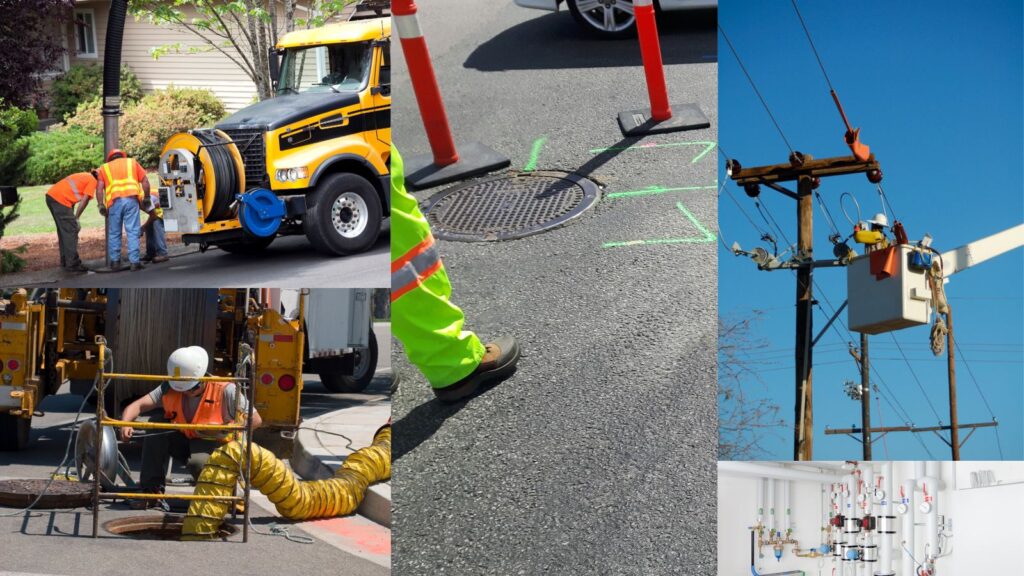City councils in Australia are responsible for ensuring all utilities are functioning correctly. Since the hard-earned taxpayers’ money funds utilities such as water, wastewater, and roading industries, city councils have an even higher burden of ensuring public safety. Whether that is in terms of guaranteeing water and wastewater quality standards, consuming less energy, or lengthening the life cycle of utility assets lifecycles, city councils need to carry out due diligence and meet all the said responsibilities on a limited budget and sometimes limited resources. This article will explain how city councils in Australia can build public trust with such restrictions.
What Are City Councils Responsible For?
When attempting to define public trust, according to the meaning in the dictionary, it refers to the ‘firm belief in the reliability, truth, ability or strength of someone or something’. In this context, therefore, the public must be able to rely on the strength of the government of Australia, which is what the city councils represent. City councils are the third level of government in Australia, known by the umbrella term “local government”, which was introduced via the Constitution Act 1975. The other two levels include federal and state agencies, respectively. There are, at present, 537 city councils in the country based in urban and rural areas, which account for 10 per cent of the public sector. The council is generally responsible for various aspects, including but not limited to waste management, leisure centres, parks and gardens, and pet registrations. Enormous amounts of money are allocated to do such things, for which the city councils need to ensure that they are used correctly for the right solutions. According to the Australian Local Government Association, the local government receives money through “taxation, user charges and grants from federal and state/territory governments”. Income gained from investment interests, divided interest, income for public enterprise and fines is categorised as “miscellaneous”, which may be considered a fourth source.
Does The Public At Present Trust City Councils?
When attempting to define public trust, according to the meaning in the dictionary, it refers to the ‘firm belief in the reliability, truth, ability or strength of someone or something’. In this context, therefore, the public must be able to rely on the strength of the government of Australia, which is what the city councils represent. City councils are the third level of government in Australia, known by the umbrella term “local government”, which was introduced via the Constitution Act 1975. The other two levels include federal and state agencies, respectively. There are, at present, 537 city councils in the country based in urban and rural areas, which account for 10 per cent of the public sector. The council is generally responsible for various aspects, including but not limited to waste management, leisure centres, parks and gardens, and pet registrations. Enormous amounts of money are allocated to do such things, for which the city councils need to ensure that they are used correctly for the right solutions. According to the Australian Local Government Association, the local government receives money through “taxation, user charges and grants from federal and state/territory governments”. Income gained from investment interests, divided interest, income for public enterprise and fines is categorised as “miscellaneous”, which may be considered a fourth source.
How Can City Councils Improve Their Relationship With the Public?

There are multiple practices and methods that can be adopted to help the public trust city councils. Statistically, various studies show that people find it easier to trust individuals than an institution. One famous example cited includes the percentage of the public that trusts doctors and the NHS. According to one study, 91 per cent of the British public would trust a doctor to tell the truth, although only 71 per cent would trust the NHS as a whole. City councils in Australia aim to increase public trust in the local government as a whole. According to a study by OECD, only 38 per cent trust city councils, with 14.1 per cent responding in neutral. Hence, each individual is required to follow ethical practices in their term. Here are some of the best practices that can be implemented:
Where A Council Member Has A Conflict of Interest
Council members in Australia naturally build relations with community members in a respective state. This includes communicating with the business community. They become an essential audience for council members generally because companies wield a lot of influence on the public. The issue with entering into a partnership or affiliating an individual in a business with significant financial power is that the public may not be able to distinguish acts that are done for the sole benefit of the public or the personal interest of the councillors. In other words, the public needs assurance that the private interests of councillors will not hinder their decision-making capabilities. One way to do so is by handling such relations transparently. Legally, as per the Local Government Act of 1989, councillors must identify and disclose their conflict of interest. In such a situation, a council officer, different from a council member, will guide although they do not make the decision. While the effectiveness of this strategy may be in doubt, Australia holds the councillor responsible for their actions. Thus, in the event something does occur, the council member may have to face drastic repercussions.
Preventing Roading Accidents
Roading accidents can occur due to many reasons. Other than faults resulting from drivers’ recklessness, accidents may happen because of damaged roading assets. Roading managers are responsible for ensuring roading assets are in excellent condition. This can be done by integrating industry 4.0 technologies such as the Internet of Things (IoT), AI, ML, digital twins, laser, CCTV and other technologies. All these advanced tools can monitor the condition of assets in real time. Consequently, the system will be able to predict road anomalies, whereby the road manager can take advanced steps to prevent them. For instance, CCTV can detect potholes and other conditions affecting road and pavement indexes in its initial stages. Doing so allows maintenance to be scheduled and fixed based on criticality before it worsens. This also allows managers the opportunity to increase the lifecycle of highways and other roading assets. Technologies such as GIS can capture and monitor an entire city’s assets through one smart screen. With just one glance, managers can prioritise maintenance accordingly, based on ensuring road users are safe.
Performance Monitoring And Reporting
One way to effectively influence the public to trust the city council is by being transparent in its actions. Annual reports that are published, which demonstrate performance is a great tool. In such reports, the public will know how the local government utilised the funding for a specific purpose. This also provides an opportunity for the local government to inform the public about the latest initiatives done for public safety. Hence, especially in situations where only bad news seems to end up trending in social media, anyone interested to know the contributions done by the local government for the safety of its citizens can read it. Additionally, the inclusion of statistics is another way of assessing the performance of the local government. However, as statistics tend to be subjective, the council members must explain the methodology used to provide those conclusions in detail.
Combating Against Climate Change
Local government can increase the public’s trust by taking measures against climate change. Understanding that the number of emissions emitted, for instance, is not information civilians are aware of, the local government needs to monitor emissions and incorporate measures to curtail them. According to ‘Beyond Zero Emissions’, 50 per cent of Australian councils provide public information on climate change. Reports note that councils have taken initiatives to educate communities and corporates about reducing their carbon footprint. However, only 19 per cent of Australian councils provide “public corporate emissions targets”, whereas only 7 per cent provide a public target to reduce community emissions. Some eco-friendly measures include installing solar PVs in council facilities, introducing bike paths, implementing urban forest and greening strategies, introducing programs for organic waste diversion, constructing electric vehicle infrastructure, and more. The incorporation of industrial fans in road tunnels is another important measure the public’s safety is assured as toxic gasses are removed.
Additionally, the infusion of GIS or satellite technologies has given local authorities warnings of impending floods or landslides. As a result, civilians can be evacuated while a contingency plan can be implemented to ensure the public is safe. It is interesting to note that according to the survey done by OECD, 55 per cent of the respondents believed that the government should prioritise reducing their country’s contribution to climate change.
Increase Public Service Opportunities
There is no better way to increase the public’s trust than talking to them. Hosting events or giving to towns or cities to listen to what the public has to say provides a platform for locals to voice their sufferings and for the local council to look into curtailing such problems. In other words, providing an opportunity for the public to participate in the policy-making process can immensely gain trust. In Australia, 46.82 respondents in the OCED survey reported that they are not confident they have a say in government decision-making. The youth have lower levels of trust towards the government. These percentages can be changed to a certain level even in the simple act of visiting and speaking to people daily rather than only during election time. Consistently listening to what the public has to say are ways for the public to understand that the government cares about its people. In that sense, initiatives should be taken to encourage the public to participate in public services. There should additionally be safe opportunities for civilians to complain when a local council fails to do their duty. This way, instead of taking it to social media, a mechanism which assures the public that their feedback will be taken seriously will be more effective and less embarrassing to the government. Similar views are supported by 41.76 per cent of the respondents that took part in the OECD report.
Mitigating the Risks of Corruption
Corruption may occur in local councils. The only way to ensure that it does not deter the public from trusting councils is by holding corrupt city councillors accountable when proven. Councils aim to benefit communities financially, politically and socially. Hence, the principles of accountability in Australia for the local government have been based on “financial probity, financial propriety and adherence to conflict of interest principles, and conformance to ethical canons”. It is essential to have a transparent system so the public knows its finances cannot easily be used for a counsellor’s interest.
Trust is an Essential Factor for the Legitimacy and Functioning of Democracies
The OECD highlights that the level of trust between the public and governments reflects the legitimacy and the functioning of a democracy. Hence, city councils must welcome public participation and feedback and be transparent in their operations to gain their trust. Professor Tarun Khanna, from Harvard University, notes in his book Trust: Creating the Foundation for Entrepreneurship in Developing Countries that a lack of trust leads to a state or a country where its citizens are reluctant to pay their taxes, are not encouraged to follow the law, or contribute to the economic vitality of the country. In simple terms, having an extremely low level of trust among the public would mean that people would not work towards the betterment of the country.







